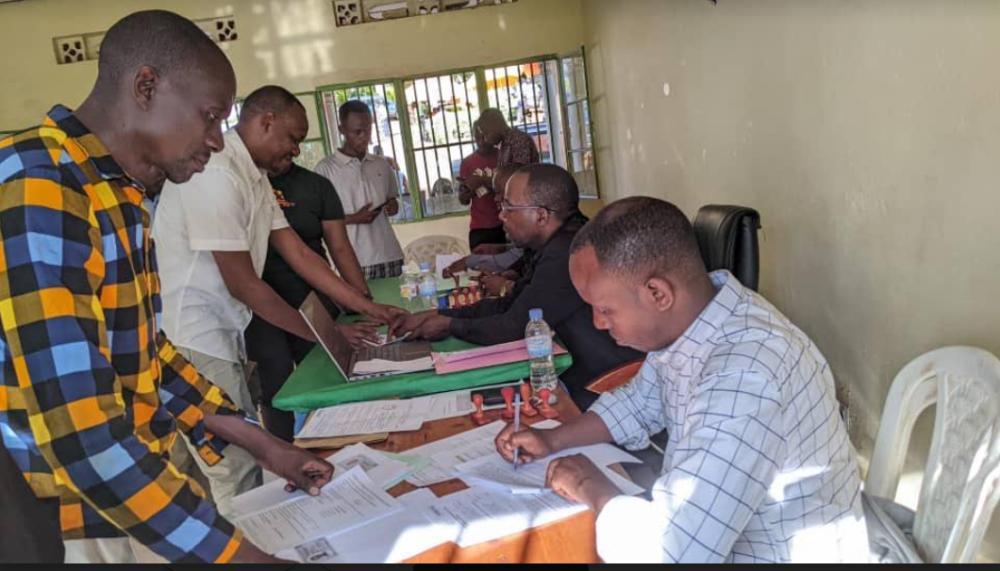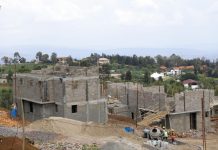Jean-Claude Nshimiyimana
Africa-Press – Rwanda. As a corporate commercial lawyer actively versed in the local market, having steered numerous land transactions for diverse investors across industrial, hospitality, residential, and other key projects, I have consistently observed a fundamental pillar of Rwanda’s economic stability and investment attractiveness, the clarity and integrity of Rwanda’s land title system and its thorough verification processes.
A land title in Rwanda is an authentic legal document that unequivocally confirms a person’s rights to a specific piece of land. This simple document is the cornerstone upon which all secure land transactions are built. It represents a legally recognised right, backed by the 2021 Land Act and applicable Presidential and Ministerial Orders, pledging a predictable and structured environment for land ownership.
At the center of this system are the Registrars of Land Titles, authorised public officers whose duties, powers, and functioning are precisely determined by the 2022 Prime Minister’s Order governing registrars of land titles. Registrars of Land Titles are responsible for keeping authentic land titles, continually updating the land register, issuing land titles, and providing information related to land ownership.
Rwanda’s land title system, administered under the 2022 Ministerial Order on land registration, guarantees secure ownership through strict land registration procedures requiring specific documents and allowing error corrections without compromising other interests. State land, owned and managed by the government, represented by the Ministry of Environment, is either registered under freehold or leased for commercial use, with state private domain land for commercial activities sometimes registered under a state-owned company or specialized State organ.
For any investor seeking to utilise state land, it is imperative to comply with the terms of the contract concluded with the government and the approved business plan. Non-compliance can lead to the cancellation of granted rights. While freehold tenure is generally reserved for Rwandan citizens, foreigners may, under exceptional circumstances of strategic national interest, be granted freehold titles by a Presidential Order.
Notaries play a critical role in strengthening legal certainty within land transactions by authenticating signatures on contracts related to immovable property transfers, certifying and authenticating various land-related agreements (including condominium agreements), and validating powers of attorney, a process that supports the validity of agreements and protects the interests of all parties involved in transactions.
One of the most considerable concerns for any investor is the potential for land ownership disputes. Rwanda has established clear modalities and procedures for resolving such conflicts, as detailed in the 2022 Ministerial Order on Land Dispute Resolution which addresses disputes related to land boundaries and systematic land registration, especially those dating from January 2008 to December 2013.
Claims seeking the cancellation of decisions on these disputes are submitted to the relevant District, or the City of Kigali, which is responsible for rendering a decision on the matter. For sub-lease disputes, amicable settlement is encouraged as a first step, with recourse to the competent court in case of failure. Moreover, caveats on land transfer can be lodged to protect interested parties. While caveats can be cancelled by a court order, the Registrar of Land Titles can also cancel a baseless caveat after hearing from both parties.
Rwandan courts consistently affirm that land titles, even when issued, can be challenged and invalidated if they were acquired fraudulently or without proper documentation of legitimate acquisition. In one case of Harerimana et al. v. Sebukayire, a land title was invalidated because the holder could not prove how they acquired the land through recognised (legal) methods or means (custom, purchase, donation, sharing, exchange, or succession etc.). Also, in Nicyabera v. Mukagatare, the Supreme Court upheld that a person registering land without indicating how it was acquired through legal means does so illegally, and such land titles do not grant definitive rights and can be invalidated.
Rwandan courts can order the rectification of a registered title if it includes an area that was mistakenly granted or should be a public passage. This means that despite holding a formal land title, if the underlying acquisition of part of the land was flawed (e.g., a public passage was absorbed into a private plot due to an error), the land title can be corrected.
Disputes over land ownership often depend on comprehensive evidence. While a land title carries significant weight, Rwandan courts examine all submitted evidence. In one dispute (Semapondo v. Rwasimpenzi et al.), a bank deposit slip for a plot purchase was deemed insufficient on its own when pitted against a party who had a registered title that clearly identified the plot by number, location, and area, especially when the seller confirmed the latter transaction. Equally, a master plan for plots allocation, held by a competent authority, can constitute reliable evidence of ownership in land disputes.
So, is purchasing land in Rwanda a risky investment? It can be, if approached without sufficient knowledge and due diligence. However, for the informed investor, land titles in Rwanda are indispensable for protecting investments and preventing disputes, making land investments secure and reliable.
Source: The New Times
For More News And Analysis About Rwanda Follow Africa-Press






